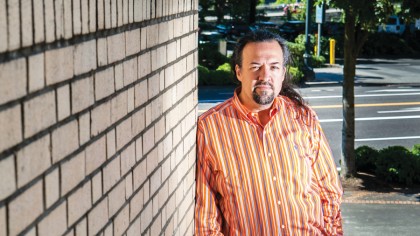How open source changed Google - and how Google changed open source
We chat to Google's head of open source software
LXF: Are you allowed to have an opinion on these kind of subjects, or do you remain objective?
CDB: I always let one thing guide my actions and to date that's served me well. And it's this: I don't care, OK, if I like a project, or what it does for a user, or if I'm the user of that project so long as they're in compliance with open source licences - in spirit and in letter - I'm fine. I don't have to like it so long as they're compliant - so long as they're not disrespecting my friends in open source software. As long as our colleagues in open source software are being served well, I don't have to like it, because I like being in compliance. I am that kind of regulator, and as long as that which I regulate is healthy, I'm happy.
LXF: And that includes something as contentious as DRM in the HTML 5 specification?
CDB: It's extremely contentious. What I end up doing more often than not in those cases is ensuring, as much as I can, that the two teams treat each other nicely, you know don't call each other names, or whatever, and don't try to force the issue in unhealthy ways with each other.
LXF: And as long as they're both in compliance, you're happy?
CDB: As long as they're both in compliance, we're happy. That's actually never been a problem. They all know that that's something that's important too, so that's never really been a problem. The trick is when people are working on conflicting or competitive projects with each other; it's very difficult to keep them from turning that into a personal problem. As an engineering manager this is something that's true.
LXF: What if there's a philosophical difference?
Sign up for breaking news, reviews, opinion, top tech deals, and more.
CDB: It's funny because people say 'Oh, it's just software, you shouldn't worry about it'. Or 'It's just business, you shouldn't worry about it'. But what people seem to forget is that software and business are personal. It's how we get through our day. It's an important part of our lives so trying to keep things in perspective is really important. Now, you could say 'Does that make you a sellout Chris?' But I don't feel it does because given that the overall actions of the company have been, in my opinion, really strong and on the side of the angels, I think it's OK for us to have these discussions, especially internally.
LXF: What do you spend most of your time working on now?
CDB: I have a team of about 30 or so people working for me, and that's on various aspects of compliance and the Summer of Code, as well as tooling and infrastructure. I end up doing people management. Acquisitions compliance takes up a fair bit of time. When you have as many engineers as we do, and you have as many programme managers as we do, and project managers; people inside the company have to care about their careers and make sure that they're happy at a company like Google. So looking after promotions and calibration is something I think is really important, but not as exciting for your readers.

LXF: Do you get to influence policy?
CDB: Yes and no. I mean, I'm a director in the company. That means I'm not in charge. Larry is in charge, and then we have a bunch of people who are way more senior than I am. But I'm able to help out in a lot of ways, help people find their way careers and that's actually really rewarding.